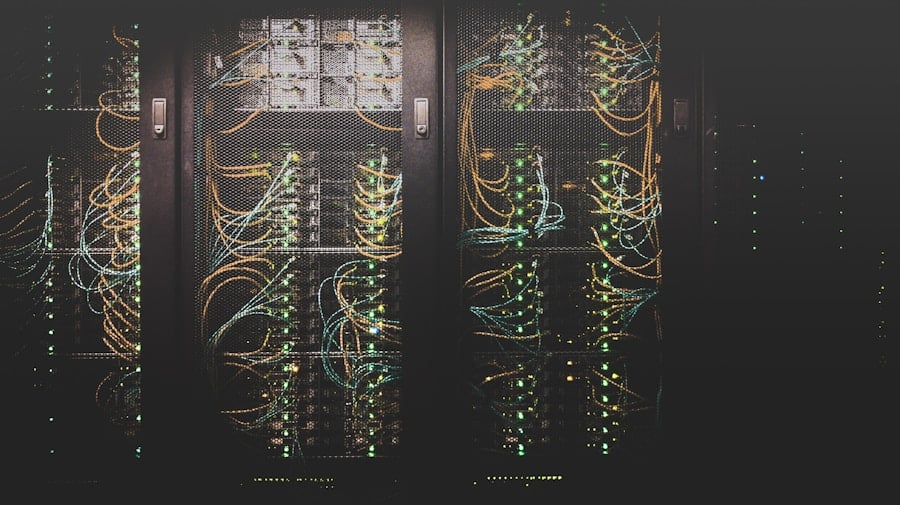Artificial Intelligence (AI) and quantum computing are two of the most transformative technologies of the 21st century, each with its own unique principles and applications. AI refers to the simulation of human intelligence processes by machines, particularly computer systems. These processes include learning, reasoning, problem-solving, perception, and language understanding.
AI systems can be categorized into narrow AI, which is designed for specific tasks, and general AI, which aims to perform any intellectual task that a human can do. The development of AI has been fueled by advancements in machine learning, where algorithms improve through experience, and deep learning, which utilizes neural networks to analyze vast amounts of data. On the other hand, quantum computing leverages the principles of quantum mechanics to process information in fundamentally different ways than classical computers.
Classical computers use bits as the smallest unit of data, represented as either 0 or 1. In contrast, quantum computers utilize qubits, which can exist in multiple states simultaneously due to superposition.
Additionally, quantum entanglement enables qubits that are entangled to be correlated with one another, regardless of the distance separating them. This unique property can lead to exponential increases in processing power for certain types of problems.
Key Takeaways
- AI and quantum computing are two distinct fields with the potential to revolutionize technology.
- The synergy between AI and quantum computing can lead to significant advancements in speed and efficiency.
- Real-world applications of AI and quantum computing have the potential to impact various industries.
- Challenges and limitations in the development of AI and quantum computing need to be addressed for further progress.
- Collaboration between experts in AI and quantum computing is crucial for future developments and ethical considerations.
The Synergy Between AI and Quantum Computing
The intersection of AI and quantum computing presents a fertile ground for innovation and discovery. Quantum computing has the potential to enhance AI algorithms significantly by providing the computational power necessary to process and analyze vast datasets more efficiently than classical computers can. For instance, machine learning models often require extensive training on large datasets, a process that can be time-consuming and resource-intensive.
Quantum algorithms, such as Grover’s algorithm for searching unsorted databases or the HHL algorithm for solving linear systems of equations, can dramatically reduce the time required for these tasks. Moreover, AI can also play a crucial role in optimizing quantum computing processes. Quantum machine learning is an emerging field that combines quantum computing with machine learning techniques to create algorithms that can learn from data more effectively than their classical counterparts.
For example, researchers are exploring how quantum neural networks could outperform traditional neural networks in tasks such as image recognition or natural language processing. This synergy not only accelerates advancements in both fields but also opens up new avenues for research that were previously unimaginable.
Advancements in Speed and Efficiency

One of the most significant advantages of integrating AI with quantum computing is the potential for remarkable advancements in speed and efficiency. Classical algorithms often struggle with problems that involve high-dimensional data or complex optimization tasks. Quantum algorithms can tackle these challenges more effectively due to their ability to process multiple possibilities simultaneously.
For instance, in optimization problems like the traveling salesman problem, where the goal is to find the shortest possible route visiting a set of cities, quantum algorithms can explore numerous routes at once, significantly reducing computation time. Additionally, the efficiency gains from quantum computing can lead to breakthroughs in various fields such as drug discovery, materials science, and financial modeling. In drug discovery, for example, quantum computers can simulate molecular interactions at an atomic level much faster than classical computers, allowing researchers to identify potential drug candidates more quickly.
This capability could revolutionize the pharmaceutical industry by reducing the time and cost associated with bringing new drugs to market. Similarly, in materials science, quantum simulations can help scientists design new materials with specific properties by predicting how they will behave under different conditions.
Real-world Applications and Implications
The real-world applications of AI and quantum computing are vast and varied, spanning numerous industries and sectors. In finance, for instance, quantum computing can enhance risk analysis and portfolio optimization by processing complex datasets more efficiently than traditional methods. Financial institutions are already exploring how quantum algorithms can improve trading strategies and fraud detection systems.
By leveraging the power of quantum computing, these institutions can gain a competitive edge in an increasingly data-driven market. In healthcare, the combination of AI and quantum computing holds promise for personalized medicine. By analyzing genetic data alongside clinical information using quantum-enhanced machine learning algorithms, healthcare providers could tailor treatments to individual patients more effectively.
This approach could lead to improved patient outcomes and reduced healthcare costs by ensuring that patients receive the most effective therapies based on their unique genetic profiles. Furthermore, in logistics and supply chain management, companies are beginning to utilize quantum algorithms to optimize routing and inventory management, leading to significant cost savings and increased efficiency.
Challenges and Limitations
Despite the immense potential of AI and quantum computing, several challenges and limitations must be addressed before these technologies can reach their full potential. One significant hurdle is the current state of quantum hardware. Building stable and scalable quantum computers remains a complex engineering challenge due to issues such as qubit coherence times and error rates.
As researchers work to develop more robust quantum systems, there is a pressing need for advancements in error correction techniques and qubit design. Additionally, there are challenges related to algorithm development. While some quantum algorithms have shown promise in theory, practical implementations often require further refinement to be effective in real-world scenarios.
The field of quantum machine learning is still in its infancy, with many researchers exploring how best to adapt classical machine learning techniques for quantum environments. This ongoing research necessitates collaboration between computer scientists, physicists, and domain experts to create algorithms that can leverage the unique capabilities of quantum computing effectively.
Future Possibilities and Developments

Breakthroughs in Cryptography and Secure Communication
As advancements in quantum hardware continue to progress, we may witness the emergence of practical quantum computers capable of solving problems that are currently intractable for classical systems. This could lead to breakthroughs in cryptography, where quantum computers could potentially break existing encryption methods while also enabling new forms of secure communication through quantum key distribution.
New Paradigms for Machine Learning
Moreover, as AI continues to evolve alongside quantum computing, we may see the development of entirely new paradigms for machine learning that harness the unique properties of qubits. For instance, researchers are investigating how quantum entanglement could be used to create more efficient neural networks or how quantum annealing could optimize complex decision-making processes.
Revolutionizing Industries
These developments could revolutionize industries ranging from transportation to energy management by enabling smarter systems that can adapt to changing conditions in real-time.
Ethical and Societal Considerations
As with any transformative technology, the convergence of AI and quantum computing raises important ethical and societal considerations that must be addressed proactively. One major concern is the potential for misuse of these technologies in areas such as surveillance or autonomous weapons systems. The ability of AI to analyze vast amounts of data combined with the computational power of quantum systems could enable unprecedented levels of monitoring and control over individuals’ lives.
Furthermore, there are implications for job displacement as automation becomes more prevalent through AI-driven systems enhanced by quantum computing capabilities. While these technologies have the potential to create new jobs and industries, there is a risk that certain sectors may experience significant disruption as tasks become automated. Policymakers must consider how best to manage this transition by investing in education and retraining programs that equip workers with the skills needed for emerging roles in a technology-driven economy.
The Role of Collaboration in Advancing Technology
The advancement of AI and quantum computing will not occur in isolation; it will require collaboration across disciplines, industries, and borders. Researchers from diverse fields such as computer science, physics, mathematics, and engineering must work together to tackle the complex challenges associated with these technologies. Collaborative efforts can lead to innovative solutions that push the boundaries of what is possible with AI and quantum computing.
Moreover, partnerships between academia and industry will be crucial in translating theoretical advancements into practical applications.
Additionally, international collaboration will be essential as countries seek to harness these technologies for economic growth while addressing shared challenges such as climate change or public health crises.
By fostering a spirit of cooperation and knowledge sharing, stakeholders can accelerate progress in both AI and quantum computing for the benefit of society as a whole.
In a related article, New World of Possibilities with the Samsung Galaxy Chromebook 2 360, the potential for collaboration between AI and quantum computing is further explored. The article discusses how advancements in technology, such as the Samsung Galaxy Chromebook 2 360, are opening up new opportunities for innovation and speed in computing. By leveraging the power of both AI and quantum computing, researchers and developers are able to push the boundaries of what is possible in the digital world.
FAQs
What is AI and Quantum Computing?
AI, or artificial intelligence, refers to the simulation of human intelligence processes by machines, especially computer systems. Quantum computing, on the other hand, is a type of computing that takes advantage of the strange ability of subatomic particles to exist in more than one state at any time.
How are AI and Quantum Computing collaborating for speed?
AI and quantum computing are collaborating to improve speed by leveraging the unique capabilities of quantum computing to process and analyze large amounts of data at a much faster rate than traditional computers. This allows AI algorithms to perform complex calculations and simulations more efficiently, leading to faster and more accurate results.
What are the potential benefits of the collaboration between AI and Quantum Computing?
The collaboration between AI and quantum computing has the potential to revolutionize various industries by enabling faster and more powerful data analysis, optimization, and machine learning. This could lead to advancements in areas such as drug discovery, financial modeling, and logistics optimization.
Are there any challenges in the collaboration between AI and Quantum Computing?
One of the main challenges in the collaboration between AI and quantum computing is the current limitations of quantum hardware, such as error rates and scalability. Additionally, integrating AI algorithms with quantum computing systems requires specialized expertise and resources, which can be a barrier for many organizations.

